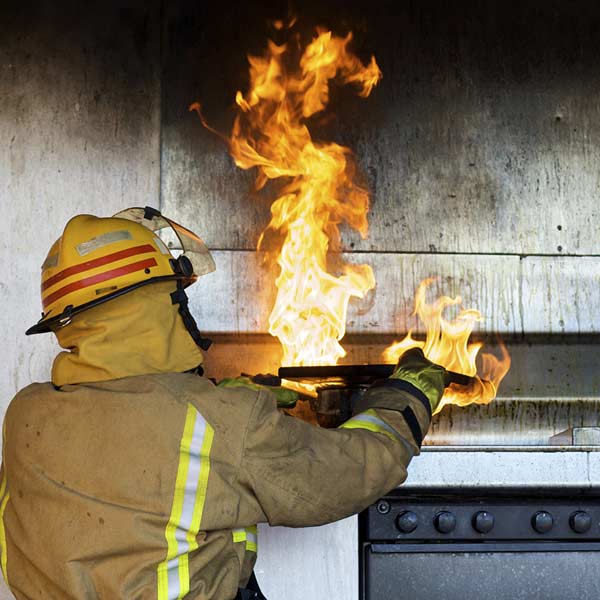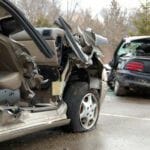How Burn Injuries Happen In Our Homes — and How to Stop Them

April 22, 2019 / Catastrophic Injuries
The kitchen is the heart of the home, a place of good smells, warmth, and bonding over delicious meals. It’s also a place where every day you work with fire, hot water, and steam — a danger zone for your and your children’s skin. A burn can be minor and treatable at home or far more serious, requiring hospitalization and a long recovery period. The most severe burns can even lead to death. But by following a few easy-to-implement safety measures, it is possible to minimize the risk of burns — in the kitchen and elsewhere in the house — and keep your family out of harm’s way.
Children Are at a High Risk for Burns
Kids love to help mom and dad in the kitchen, whether it’s making cookies or tonight’s dinner. Sadly, young people are particularly susceptible to burn injuries, and not just in the kitchen.
Here are a few statistics from the Centers for Disease Control (CDC) and Stanford Children’s Health:
- More than 300 children up to 19 years old are treated in U.S. emergency rooms every day for burn-related injuries. On average, two of those kids will die.
- Scalding burns are more common among very young children, while older kids are more likely to be hurt by direct contact with fire.
- More deaths and hospitalizations are due to contact with hot tap water than any other liquid.
- An estimated 75% of scalding injuries in children are preventable.
Burn-Injury-Proof Your Home
While children are especially vulnerable, burns can happen to anyone. Luckily, there are lots of things you can do to make your home a safe place for the entire family.
- Make sure you have a functional smoke detector on every floor. Test and change the batteries regularly.
- Set your water heater to below 120 degrees F.
- You should have a working fire extinguisher on every floor of the house.
- Don’t leave a hot stove unattended.
- Always watch small kids around stoves, fireplaces, and grills.
- Don’t be like a TV chef and flip those pork chops with your fingers. Use common sense and a spatula.
- Keep pot handles turned toward the rear of the stove.
- Don’t hold or carry a child while you’re cooking.
- Unplug irons, curling irons, and other hot appliances while not in use. Store them out of reach of small kids.
- If you have little ones around, use outlet covers and keep cords out of sight.
- Keep matches, lighters, and chemicals inaccessible to children.
- Don’t warm your baby’s bottle in the microwave.
- Draft an escape plan in case of fire. Practice it with the whole family.
- Test your kids’ bath water before putting them in it.
- Car interiors can become quite hot. Check buckles and straps before putting a child in a car seat.
While you can do everything possible to make your own home a burn-free zone, you can’t control other spaces. If you or a family member has suffered a burn injury and you believe it’s due to someone else’s negligence, you may be entitled to compensation. Call the Indiana law offices of Stephenson Rife and speak with an experienced Indianapolis burn injury lawyer.

 Mike Stephenson has 40 years of experience and is a trusted advisor to many individuals and companies. His current practice is dominated by civil litigation in state and federal courts. He focuses much of his time on handling catastrophic injuries caused by all types of accidents, including motor vehicle, trucking, workplace injuries, product liability, and fire, just to name a few. He also works extensively in construction accidents. [
Mike Stephenson has 40 years of experience and is a trusted advisor to many individuals and companies. His current practice is dominated by civil litigation in state and federal courts. He focuses much of his time on handling catastrophic injuries caused by all types of accidents, including motor vehicle, trucking, workplace injuries, product liability, and fire, just to name a few. He also works extensively in construction accidents. [ 